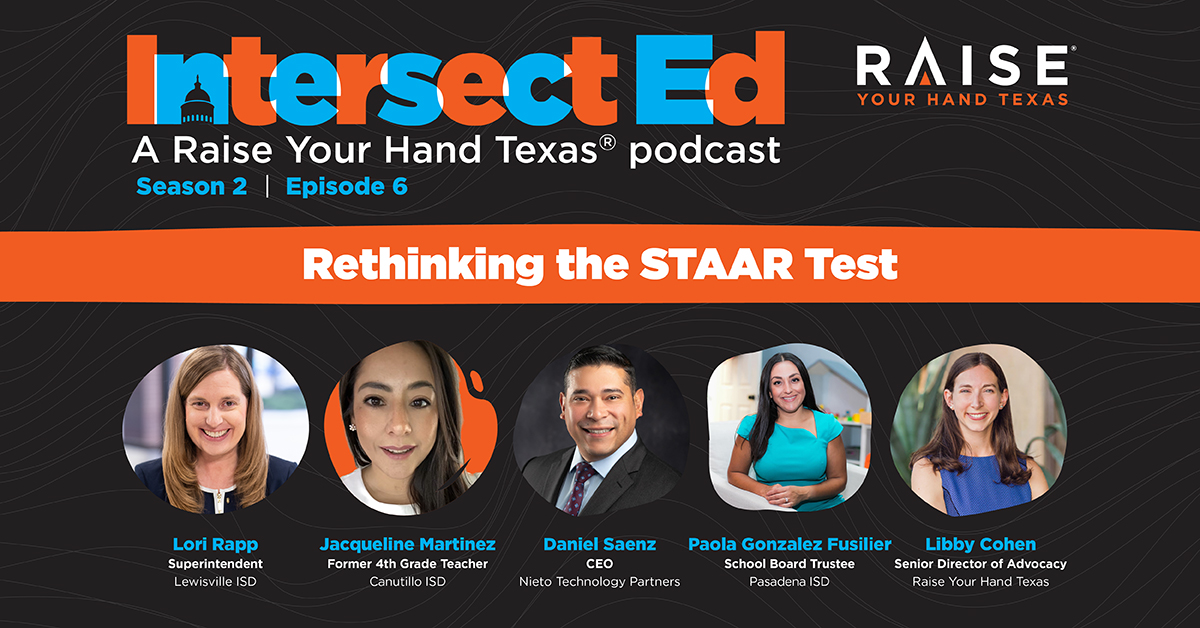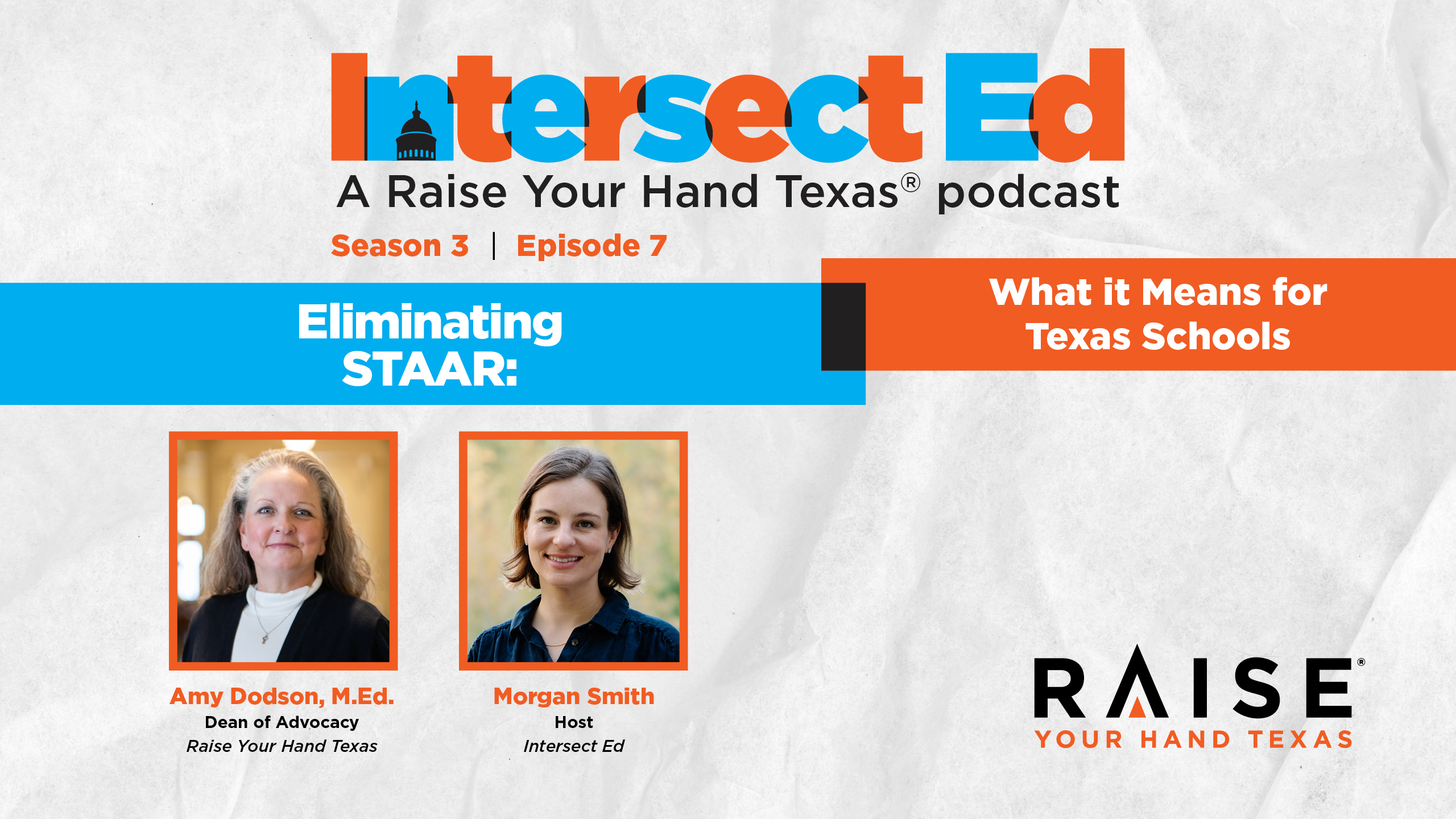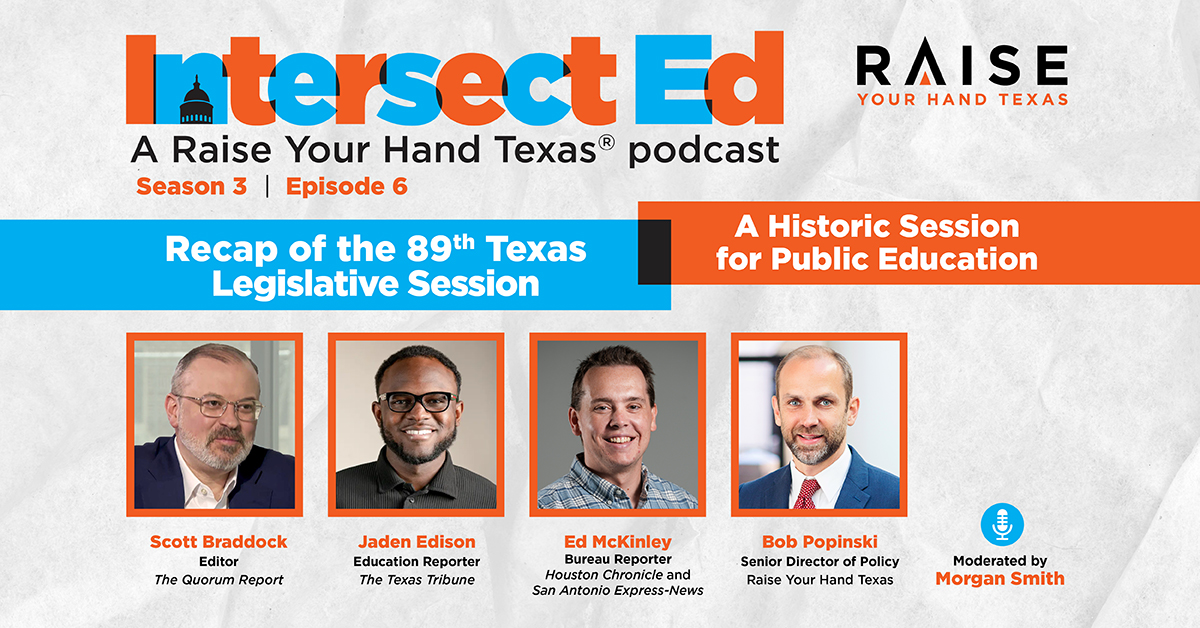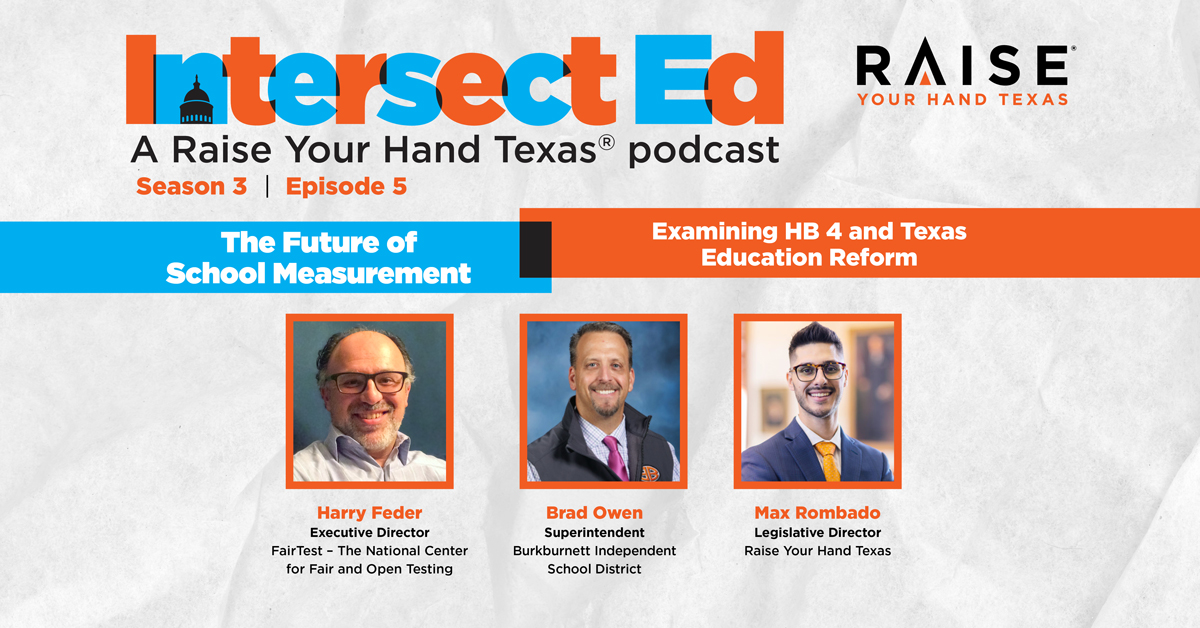
categories
Rethinking the STAAR Test


How we measure success in Texas public schools? Right now, standardized testing and an A-F accountability system that assigns grades to campuses is used almost entirely to grade our schools.
Accountability, and the transparency it brings, is essential. We need to make sure the 5.4 million students in Texas public schools are provided with the tools they need to eventually enter the workforce, and that taxpayer money is being put to good use.
But what if we had a system that looked at more than how students do on one test on one day? What if we decided that what makes a “good school” goes beyond test scores and we evaluated how districts prepare students for life and career through things like early childhood education, dual language, fine arts, and extra-curricular programs? Or the many crucial resources public schools provide to ensure the well-being of their students, like meals, mental health services, and campus security?
This is a wholly achievable idea — and one that had momentum and bipartisan support during the most recent legislative session. But, like so many other worthy public education issues, accountability and assessment reforms went down in the battle over private school vouchers during the 88th Session.
In this episode, hear from Lori Rapp, Superintendent at Lewisville ISD; Jacqueline Martinez, Former 4th grade teacher at Canutillo ISD; Daniel Saenz, CEO of Nieto Technology Partners; Paola Gonzalez Fusilier, School Board Trustee at Pasadena ISD; and Dr. Libby Cohen, Senior Director of Advocacy at Raise Your Hand Texas, each discusses assessment and accountability from their unique perspectives.



